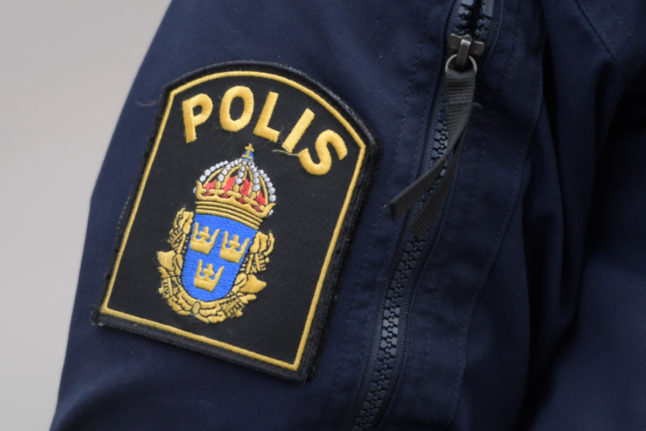In emergency situations
If you’re witnessing or are a victim of an ongoing crime in Sweden – for example assault, burglary or dangerous driving – or if you believe someone is in immediate or imminent danger, always dial the European emergency number 112. You can call from a foreign mobile phone number, too.
The operator will be able to speak Swedish or English and they will ask you a series of questions, most importantly what has happened, where has it happened and what phone number are you calling from.
This is also the number you call if you need urgent medical attention.
In non-emergency situations
If you need to report a crime that isn’t an emergency, don’t call 112.
If you don’t have a Swedish personal identification number, or if you need to speak with a police officer to get guidance on how to file your report, you should call 114 14 or visit a police station in person.
It will be possible to speak to someone in Swedish or English if you call 114 14.
If you’re calling from outside of Sweden, dial 0046 77 114 14 00.
Here’s a list of all police stations and their opening hours. You can call 114 14 any time, day or night.
If you have a Swedish personal identification number, that is a personnummer or a coordination number, you can file a report online. Try to include as much information as possible, but the most important details are your personal contact information and the time and place of the crime.
You should also make sure you save as much documentation as possible, which can later be used as evidence. You can complete your report later so you don’t need to submit all of this at the start.
Should I report the crime?
Yes, and not just if you want the police to look for who committed the crime.
Your report helps Sweden keep its crime statistics accurate, which informs police and authorities on how to prevent future crime, but it also makes it easier to claim money back from your insurance company.
What happens after I report a crime?
The police will decide whether to launch an investigation or drop the case.
An investigation is generally only launched if police or a prosecutor believe it will be possible to solve the case. If there’s not enough evidence at the start or along the way, an investigation may also be dropped.
In 2022, a total of 1,692,733 suspected crimes were registered in Sweden (this figure includes both crimes that were reported in 2022 and any backlog from the previous year), of which an investigation was launched in 941,408 cases. A lack of a suspect was the most common reason for not investigating.
How long an investigation takes depends on the complexity of the crime. You don’t have an automatic right to be kept informed, but the person leading the investigation may keep you in the loop if it won’t hinder the investigation. Once the probe is finished, the prosecutor will decide whether or not to charge a suspect.
READ ALSO:
At the end of the investigation, if you’ve asked to be kept informed, you have the right to be told whether someone will be charged or not, as well as the reasons behind the prosecutor’s decision.
Who can I ask for advice?
If you’re a foreign citizen, your embassy or consulate can give you information.
You’re always allowed to bring someone as support to any interviews at the police station and during a trial, as long as it won’t affect the investigation. This person could for example be a friend, or someone from the social services in your municipality or from a victims’ support organisation.
Victims of certain crimes are entitled to get a legal counsel (a målsägarbiträde in Swedish) who will support them throughout the legal process. These crimes include sexual offences, assault or robbery.
Brottsoffermyndigheten is Sweden’s national organisation for victims of crime. They can advise on a range of questions, for example what compensation you’re entitled to or how the process works.
The police are obliged to inform you about your rights as a victim.
How many crimes are committed in Sweden?
In 2022, a total of 1,477,470 suspected offences were reported to the Swedish police, the customs authority or the prosecution service. This is a decrease of 33,087 compared to the year before, but an increase of three percent since 2013, according to Sweden’s National Council for Crime Prevention.
Theft accounts for 26 percent of the total number of reported offences. Muggings are relatively rare; a total of 5,509 muggings were reported in 2022, a decrease of 12 percent on the year before. More than 10,000 burglaries of residential homes were reported, which is also a decrease of 12 percent compared to 2021.
A total of 84,011 assaults were reported in 2022, an increase of two percent. Women over the age of 18 fell victim to 29,224 of these offences (unchanged on 2021) and men to 30,285 (an increase of five percent).
Sexual offences decreased 11 percent, to 24,656 reported crimes, and reported rapes decreased nine percent to 9,668. Sweden counts each reported incident as a separate crime, so if someone accuses their partner of raping them every day over the course of a fortnight, that would count as 14 offences.
IN STATISTICS:



 Please whitelist us to continue reading.
Please whitelist us to continue reading.
Member comments